I agree with this article. If we cannot predict what the future will look like in 2030 (which is only 13 years away), how can we assume that we can create a knowledge base that our kids will definitely need in 13 years time? Will translation software have killed language barriers by then? Will maths, spelling, coding and lots of ‘technical’ skills be replaced by software or AI that supports us? And if that is the case, what are the things our kids should really excel at if not relationships, curiosity, agility, creativity and empathy?
(If not to say that I strongly believe that the fact that we have almost all knowledge at our fingertips, is killing our creativity. Having everyone at digital arms length is killing interaction. And as all of that becomes more impersonal, we slowly grow unaccustomed to initiating change through vision, having change change us instead.)
We need to get out there and dream. We need to get out there and be passionate about the things we want to achieve. And that is something we should teach our children more than anything else. Though the world might have been explored on the map, life is -and never will be- explored to the fullest. There will always be something more, something extra, something new to build, to explore, to enjoy.
Category: English (Page 1 of 14)
 I just came across the Oil City Aftermath. A short video on the story of a small city that became huge in oil and then fell apart as the oil companies left. I have seen the effects with my own eyes and even back in 2001 did some street photography there to document the demise when I visited my friends there.
I just came across the Oil City Aftermath. A short video on the story of a small city that became huge in oil and then fell apart as the oil companies left. I have seen the effects with my own eyes and even back in 2001 did some street photography there to document the demise when I visited my friends there.
To me, the story of Oil City is one of many towns and cities and one that will be repeated over and over in the near future. With the rise of automation in jobs and daily life, this is closer to us than we think. And we need to step up to rethink who we are and what we are as cities. I think Judith Etzel formulates it very well in this video when she says: “This is what can happen to a community if you don’t diversify, if you are not open to new ideas, if you can’t think outside the box, if you can’t be innovative.”
That is why we need to step up. We need to rethink cities as set entities, but regard them as fluid. And as water takes different routes to get somewhere, the flow of jobs, income, identity, relationships and everything that shapes a city needs to change course continually. We need to be ready for that, now and in our near future, because so much is changing. Look at retail, look at care, look at the upscaling of businesses, look at automation, at the sharing economy, at augmented and virtual reality. These are things that are going to shape our future if we don’t shape our future to incorporate these things to serve us.
Nobody wants cities to decline, retail areas to be empty and businesses to close. But it is up to us to reshape our cities into vibrant communities where we embrace change, where we work with it to improve our standards of living as a community. But we need to do that now and we need to do that continually.
Oil City Aftermath from Danny Yarnell on Vimeo.
You don’t want to know how many people have come up to me and told me: “Hey, I just heard they stopped Google Glass” target=”_blank”>Google Glass. See, I said it all along, that kind of stuff will never catch on.” And they all did it with a smug smile that communicated that they were sure that people would turn away from this tech folly and go back to life as usual. In fact, only last week, I asked a group of people to think about what the future might hold for their jobs in 2025. An impossible assignment, I know. And one of them, a young woman, looked at the group and said: “I think people will turn from social networks and go back to talking to each other more.” Part of the group sighed with relief as there are many people that would love to see that happen. But I doubt it. For one, technology is here to stay. Just as we are not going to move away from central heating to an open wood fire in the middle of our living room, we are not going to step back from new technology. Why? Because it would just be a step back in the way we are living our lives.
Lets just be honest. We are so used to having everyone literally at arms’ length. Reach for your phone and you can talk to your friends, exchange messages, catch up with what they have been doing and share your own stories. I doubt that principle is going to change. The way we experience it will change though. The big question is how we are going to be integrating technology into our daily reality. We have seen a lot of talk about the internet of things. Though I like the idea of my fridge talking to my shopping list, that does not sound like the tech enabled future that we can all get excited about. In fact, in a survey held by Affinnova back in November 2014, 92% said it is difficult for them to say what an IoT (Internet of Things) enabled product needs to have for them to purchase it. However, they do say that they will recognize it when it is there. For me the essence of that survey is that IoT is not something we dream about. It is like water, we use it, but we don’t really appreciate it.
I believe that there is more. Much more. Stuff that we can dream about. A couple of months ago, I visited NuFormer‘s Virtual Reality Experience Center. I had tried the Oculus Rift” target=”_blank”>Oculus Rift before, but these guys took it to a new level. As I stood on level ground in a square space, the projection had me jumping from stone to stone and precariously balancing myself not to fall off into the vast sea of hot lava beneath me. (No, I don’t have video of that.) I was amazed at how much this system could trick all of my senses into being in a completely different place. Even though my mind could still recall that I was in that room, my body was definitely jumping those stones. I was doubtful a year and a half ago, but my body did not doubt this experience.
However, I don’t really see us stuck to huge glasses and a battery backpack as we go through life. Granted, this will change over time, but still. And then last Friday Magic Leap posted a short video about a day at their office. This is an interesting video in that they have chosen an interesting mix between virtual reality and augmented reality. I mean, when fighter robots make holes in your ceiling and come for you, that goes a bit beyond regular augmented reality.
Robots aside, I can see technology as demonstrated by Magic Leap enter our world. I personally am not much of a fan of games where opponents need to be shot, but I can imagine incredible fun for kids with a setup like this and a version of Kinectimals on steroids. But moving away from the games, imagine working with this on a daily basis. No more screen restrictions and all your stuff literally at your fingertips. When the technology making that possible isn’t too intrusive on your experience of daily life, this opens up endless possibilities. Teaching biology by showing the animals close up. Running tests for new products without having to produce them first. Interacting with every day objects which enhance your experience. I think there is much to be said for this. And I am interested where this will take us.
Oh, and obviously I would love to sit down with you to hear your opinion about this. Or you could leave it in the comments and we can discuss it here. Or on social networks, or Skype or… or…
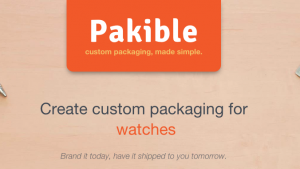 I just came across Pakible, a packaging startup. A what? Yes, a packaging startup. As more and more people are selling making and selling their own products, it does nothing for its appearance to just stick it in a brown box you found at the supermarket. That is why I am really interested in Pakible. It brands 10 boxes for you for $10. That must be a bargain. To be honest, I am kind of annoyed that they do it in the US. I thing there is lots of opportunity for something like this worldwide.
I just came across Pakible, a packaging startup. A what? Yes, a packaging startup. As more and more people are selling making and selling their own products, it does nothing for its appearance to just stick it in a brown box you found at the supermarket. That is why I am really interested in Pakible. It brands 10 boxes for you for $10. That must be a bargain. To be honest, I am kind of annoyed that they do it in the US. I thing there is lots of opportunity for something like this worldwide.
Oh, and for those of you that have read the book The 4-Hour Workweek: Escape 9-5, Live Anywhere, and Join the New Rich by Timothy Ferriss, here is another idea. Imagine combining a startup like Pakible with a drop shipping company and shipping your own product in your own branded box. That has to make you feel like Apple…

The 4 options for highly congratulated people

Google even congratulates me, but I cannot find a way to say thanks to them personally.
1. Ignore them
Yes, I know, totally rude. But that really is like it was in the old days. We would get the cards, but we would never send one back. Or did you? I sure did not. But now, we would consider that rude. Or at least, I would. Why? Because there is a difference in the way I congratulate you through social media. It is like shaking your hand. And I wouldn’t like it if I would shake your hand and congratulate you, with you doing something completely different at the same time and ignoring me. So, for me, the first option is probably the worst.
2. Send a general thank you message
This is something that has been getting popular lately. Messages like “I want to thank everyone who has congratulated me today, and I am so overwhelmed by the amount of reactions that I cannot possibly answer to all of them personally.” It seems like a nice thing to do. But is it? I doubt it. There are countless people that have taken time out of their busy schedule to acknowledge your existence and to send you their best wishes. So, how do you repay them? By getting up in a crowded room and saying “Thanks folks, it is great that you all want to shake my hand, but I am not going to shake yours.” Again, that does not really feel good, now does it?
3. Acknowledge the congratulations, then do a general message
Another option. You can like, favorite, +1 or otherwise acknowledge the question. That at least gives people the general idea that you have seen that they want to congratulate you. But you are still not actually interacting with them. It is sitting at your desk, doing your work while sticking your left hand out and keeping your head down so people can shake your hand but not disturb you wile doing it. And then the next morning you get up and say “Oh, yes and thanks everyone who shook my hand. You know who you are and I appreciate it.” Yeah, right. Like I am going to come up to shake that hand again.
4. Thank them. Personally.
For me, this is the only option. People are initiating a conversation with me. They are sticking their hands out waiting to shake mine. So I need to grab theirs and shake them, look them in the eye and respond to them. There really is no other way. You might think I have nothing better to do, but in reality, I love it when people take time out of their busy schedule to show me they appreciate me. Even though it has been a quickly scribbled message on Facebook, Twitter, Google Plus, LinkedIn, Ello or another network. By responding, I make sure that they know I appreciate them too. So, yes, this is taking time, but it is also a great way to get back in touch.
Want to test it? Drop me a message. I will respond to all of them personally. I promise. Though it might not be in the first 5 seconds. 😉
Though you might find this a strange title, please bear with me. Since the launch of Uber, I have been following the company with interest. I love the service. If I am somewhere where I need a taxi, I will first check if there is an Uber available. Why? Not necessarily because of the service itself, but because of the way it fits me.
I like things to be easy for me. I dislike standing in the streets of Paris at night and having to wave my arms off to get a taxi to stop, only to almost experience a case of involuntary kamikaze. Ok, granted, there are many great taxi drivers. Honest. But I like the convenience of a service that I can call wherever I am, that comes to me and that allows me to pay regardless of whether I am carrying cash. And that has changed the way I use taxi’s.
Great. But how about those protests? Are they stupid? Not really. In a way I can see their point. But then again, I cannot. After all, the world is changing. Technology has given us opportunities to do things in ways we had never thought possible 10 years ago. In 2009 I sat at a dinner with the CEO of a large newspaper who was complaining about newspaper sales going down. I asked him why he was surprised. After all, newspapers and their business models have been around since around the 12th century. It was bound to change someday. A couple of months later, I was at a table with several Swiss bankers that assured me that the world would always need banks. Naturally, I showed them that there were initiatives around that could make them completely obsolete.
Times are changing. Business models are changing and the expectations of our customers change faster than most of our businesses can. After all, the taxi licensing system cannot just be scrapped overnight. However, both the taxi drivers as well as the governments need to be prepared to consider doing just that. And I know that that is going to be hard. But creating a way to keep your business profitable against the expectations of your customers is not going to work for long. After all, how many of those artists will have benefitted from (il)legal downloading of songs? Not too long ago they only expected to be purchasing full albums at record stores. And if I may remind you, many of those have had to close. I never saw those on strike either. Not that anyone would have noticed.
The whole idea here is to move on. Yes, you are in an old profession that has cost you a large investment, but what are the earnings in the future? If the only way you can earn money is through the protection of your industry, I am sorry, but you have lost already.
The tone of voice in the contact you have with your customers defines you in their minds. This is much more serious than most people think. Because their return business relies on how they feel about you. And that could very well be different from what you believe has been your attitude towards them.
As an example, I just sent an email to a vendor in the US that I have bought an item from. I thanked him for the item, but also told him that Dutch customs read the paperwork he included with the item and charged me extra duties for it. I thought it nice to inform him of this matter because I had never had that happen with his colleague vendors. So, I reckoned he might like to know. Then the return email arrives in which the vendor basically tells me that I just need to suck it up and that it is not his fault.
Granted, he is right. It is not his fault that I got charged extra and he did list that taxes and duties are my responsibility. However, it is the tone of voice of the email that makes me unhappy. By the end of the message, I was feeling as if it were my fault that I bought from him in the first place. And that is the message that will stick. Meaning that I will not do business with George again, if I can help it.
If you get something that you might feel is a complaint from a client, make sure you respond to it correctly. Sympathy goes a long way in securing a next order. If this guy had told me: “Hey, I am sorry to hear that. Thanks for sharing and next time I send something out, I will check whether there are other ways to do this.” That would have made a world of difference. I would have appreciated the response and would have bought from him again.
Be friendly and be compassionate. You often don’t have to offer anything that costs you anything. But if the client feels like you care, that will make all the difference.
I read an article on The Next Web today with the title: “Why crowdfunding isn’t funding anything at all“. The author, Yaniv Tross, reasons that crowdfunding is not that at all. He renames it as a group pre-ordering platform and puts it squarely in the marketing corner. And I disagree. Let me tell you why.
I strongly believe that crowdfunding could be great for your startup. You have to read that correctly. I do not believe that crowdfunding is the best way of getting investment into every single startup, but it could be great for yours. Or not. But you will have to read on to find out which is the case.
First off, crowdfunding is different from most other types of funding. Even though both versions include pitching your ideas, products or services, the actual transaction is very different. An investor is a professional. He will judge your startup on a completely different level than end users will ever do. And that, in my opinion is part of the great opportunity that crowdfunding is giving your startup. Lets face it, people that are into crowdfunding rarely do it because they love the team, or because they think you would be great at doing a pivot and building something completely different. Those are two arguments Yaniv Tross holds against crowdfunding. For me, those are solid advantages. It is a clear case of people voting with their wallets.
If you are connected to the startup world in any way, you will have heard about lean startups and minimum viable products. Crowdfunding might be one of the fastest and most effective way to see whether people are willing to spend money on your product or your services. You pitch it and you offer them to be able to take part in what you are achieving or are going to achieve. That, to me, is brilliant. It is not down to the whims of an individual investor, or a group of investors, but it is down to your end user to vote whether or not they think you are important enough to them to survive at all. In many ways, that is the ultimate test. Instant customer feedback, plus the marketing opportunities that go with it.
Depending on the platform you are using, crowdfunding might allow you to pivot sooner than you ever would have otherwise. At Kickstarter, you need to raise your full amount to be able to get it. At other platforms, like Indiegogo, you don’t have to. Even if you raise less than your goal, you can still continue and deliver on your promise. But the great thing is that you can now contact your backers to see what they liked about your product and where they found it lacking. It is market research that is paying you, instead of you paying an agency. With the added bonus that you have early adopters that can introduce their friends to it once it is at a level where they wanted it to be. Plus the added bonus of your early adopters feeling like the in-crowd. They know they have made a difference and that the product they are using is there because of them. That is empowering customers.
And lastly, crowdfunding is not about equity shares, legal structures and other troubles that most startup owners really don’t want to deal with. I know that you will have to at some point. But why rush it? The money you raise is related to the use of your product or your service. That is also where your passion is. And yes, raising more would mean that you have to include all kinds of extra perks. But those can be found in defining extensions to your services or having access to the team and its dreams. After all, if you are building a service or product that addresses your own needs, chances are that you have the same interests as your early adopters. So, use that.
As an added bonus, when you get crowdfunding in, you will have users. They will give you traffic and traction. And there is nothing like having a startup with traffic and traction when the time comes to really raise funds.
It has been my pleasure to interview Jeremiah Owyang at LeWeb this year. At LeWeb 13 London, Jeremiah moved the discussion from the sharing economy to the collaboration economy. A term that I personally like much more, because it encompasses so much more. And that is a much better reflection of the social trend.
On Tuesday, Jeremiah officially launched his new company Crowd Companies on stage at LeWeb. I have included the video below, so you can see the whole presentation and the background on his choice to start his company. As I talked to Jeremiah in London about his ideas on the collaboration economy, I asked him to get back together on Wednesday and do a short video interview on his ideas and his drive to start Crowd Companies.
Jeremiah and myself had been talking before I started the video and I managed to fit in a complete rookie mistake to forget to introduce Jeremiah in the video. Sorry about that.
This is the video of Jeremiah’s talk on stage at LeWeb’13 Paris
 For the first time, Guy Kawasaki has made it to the LeWeb stage. Fortunately, Loïc and Guy reached an agreement that he is going to be back next year. And that is a good thing as this session had great content and it also as a great laugh.
For the first time, Guy Kawasaki has made it to the LeWeb stage. Fortunately, Loïc and Guy reached an agreement that he is going to be back next year. And that is a good thing as this session had great content and it also as a great laugh.
Guy looked back on the past 10 years and said that back then everyone said that myspace was going to be the operating system of the internet. And some 7 or 8 years ago nobody really thought we needed twitter. In fact, I personally remember a conversation I had with some Dutch early adopters back in 2008 when we said that Twitter was probably not going to be there in three years time. And as Loïc and Guy reminded everyone, Twitter is worth about 20 billion. And Guy went on saying that if we would look at his past at Apple, who would have thought that they would have become the most valuable company in the world. It is really hard to predict the future. That is hard for the next 10 monts, but impossible to do for the next 10 years.
Guy feels that Bitcoin is a lovely idea. Even if for nothing else than that it is completely outside of the grasp of Goldman Sachs. There have been people questioning the Bitcoin because it can be used to fund illegal things as it is not traceable. However, Guy says that there are a lot of technologies that are coming up that will be enabling that. And they will have a balance where some of what they are used for will be for good, and some will be used for bad things. But all of that technology is important to have as that helps us grow and develop new things. And sometimes it can even evolve from something that starts without control and evolves into something that grows something that goes into a control situation. It is when we started with Napster which grew into a movement which has then helped a whole new industry grow. Including iTunes which is very controlled.
Loïc triggers the social media card stating that Guy is a social media powerhouse. Guy answers that his approach is very different from most ‘experts’. And he adds that he uses the term experts very lightly. Social media for Guy is a means to an end. He is not looking to make more friends and more relationships. He says that he has a wife and four kids and that is enough for him. He is not looking to meet new people and have more friends. Social media for Guy is about building a platform. He has embraced the public radio model. At NPR they provide great content 365 days a year and then they gain the privilege to run the telethon once a year. So, his model is to constantly provide great content. He also has a team constantly curating great content, so that he is constantly able to provide his followers with great content. And that also gives him the opportunity to run the Guy Kawasaki telethon, because he has earned the right to do that. That is why he is constantly sharing great content, so that when he publishes a book, he has gained the right to promote his book. Or a new Evernote function as he is an advisor to Evernote. He does read all the interactions and every response from the account is done by him himself. Nobody on the team does that. Guy also repeats all of his tweets four times eight hours apart. The reason for that is that he does not believe that everybody is going to be awake and looking at Twitter at the moment a tweet is posted. Plus, he is not assuming that people are going to be scrolling back through their timelines to find that one awesome tweet. And even though that might piss people off, his reasoning is that if you are not pissing off people on social media, you are not using it hard enough. Also, he has found that posting a tweet with a link four times, really does deliver four times the clicks. He is not using different links for those four links as people rarely see that same tweet and that same link twice. And with a smile he adds that if you see that same link more than once, you probably do not have a life.
Loïc asks Guy to share some tips on entrepreneurship with the audience. He believes that the most important thing an entrepreneur can do, is to make a prototype. If you build a prototype you may never have to prepare a pitch, powerpoint deck or a projection. Because at a pitch, everyone everyone says is that they are going to be doing 100 million in 5 years. If you say you will do 500 million investors feel like you are overestimating yourself and if you are saying you will do 25 million, they think they do not take yourself serious. So, the best thing you can ever do with an investor is to show them a demo that is already in use with actual users and signup numbers. His second tip is that the challenge for European entrepreneurs is to create a product or service that is so good that American entrepreneurs want to copy it. Not to make your own local version of a great American service, but to create something awesome yourself. And there are a few European startups that have made that status like Soundcloud or Spotify. The fun part was that then Loïc took this as an insult to European entrepreneurs where he felt that Guy was saying that European startups just copy American startups. Where Guy is just saying to look beyond the Americans and paying a compliment to the companies that did just that and are defining the playing field they operate in. And his third advice to businesses is to never ask anyone to do something that you would not do yourself. Because that will never work.
Guy shared that the richest vein for Sequoia investment is two guys of girls building something in a garage that are building something they want to use. That is very different from people that build something from a business point of view to earn money. Again, I personally agree with that and that has been a point I have been pushing since 2008. If you want to build a startup, make it something that you want to use yourself and that addresses a problem that you have yourself. If you are just doing it for the money, you will have a hard time making it.
A guy from the audience asked Guy what he thinks about an investor offering to invest money if the startups would move to their area. And Guy said that if this would be the decisive factor on whether or not you can get the investment, they ought to drop the investor and find another investor that will work with them However, he does offer a middle ground where you keep your developers local, create a Delaware corporation and a west coast head office in Silicon Valley. Because it allows you to have the best of both worlds for both parties as investors do not really want to fly for 11 hours for a board meeting. And that is a factor for Guy himself as well. He is not specifically looking for opportunities that are far away. His statement literally was “why fly 30 hours to loose money there, when you can loose the same amount of money closer to home”. Mich Atagana came back to that statement and asked Guy whether he thought that not investing further away from your home town is a potential for lost opportunity? Guy agrees, but from the investors perspective it is a slightly different issue. They do not know a thing about the financial laws for investments or IPO’s and then the board meetings are 30 hours away. That is just throwing up speed bumps while you are the one looking for investment. But he does agree with Mich that the next Google might be in South Africa for instance and an American investor would not know about it.
 Yes, it is the start of LeWeb. I will be enjoying my time here. Hope you will as well. There are a number of speakers that I am looking forward for. If you don’t want to wait to see what I am seeing and hearing here, you can follow the live stream yourself. Check it out at live.leweb.co.
Yes, it is the start of LeWeb. I will be enjoying my time here. Hope you will as well. There are a number of speakers that I am looking forward for. If you don’t want to wait to see what I am seeing and hearing here, you can follow the live stream yourself. Check it out at live.leweb.co.
Ten years of LeWeb, how time flies. I have been at LeWeb for the past four years and it has always been a privilege. The theme for LeWeb for this year really triggered me to think about the future of technology and naturally of startups. As ever, I still strongly believe that startups are the best option to turn our economic processes on their heads. And the past ten years more than prove my point. Startups like Google, PayPal, Facebook, eBay, Twitter, YouTube, Spotify, Uber, AirBnB and many others have changed our lifestyle and our habits in amazing ways. However, for the next 10 years, I believe that technology will not be the primary driver of innovation.
In the past twenty years, a lot of innovation has come through the fact that we finally could. The world shrank as we finally could easily connect and keep up with friends around the world. New cell phone technology allowed us to move around and still access the same online resources as at our offices. Computers in everything have allowed us to automate many processes and make them much more efficient. But times are changing. I am not saying that technology is slowing down, because it is not. However, I strongly believe that we will see more and more technology that is driven by social developments.
I believe in the collaboration economy. And I believe that that is the track for the future. Technology that allows us to share with each other. So we can share knowledge, but also resources that we have to our disposal and that we do not use 24/7. Like the extra bedrooms we are offering on Airbnb, the rides on Blablacar, the communal bikes in cities like London, Paris, New York, San Francisco, Kopenhagen and others. I believe that in the next ten years, we will see technology integrate more and more into our daily lives to make it more a part of it than an attachment.
Take Google Glass for example. It is one of those developments that can change the way in which we interact with technology in relationship with others. But it is not the glasses themselves that will trigger us. It is the things they can do for us that are becoming more and more important. So, I do not believe that wearable technology as such is going to be a technology driver. But I believe that the way it will allow us to interact with our friends and our environment, will be the driver for technological innovation.
That is where startups come in. The next ten years are a time to reassess all the processes that run in the world to see whether we can replace them by a combination of individual masses and resources. Because there is a lot to gain in a revision of our daily routines to make them more fun and more effective through new technology. And startups are the ideal vehicle to question these daily routines.
What are your thoughts? Add them in the comments, or talk to me at LeWeb next week. I will be interviewing interesting people at LeWeb and hopefully posting some blogposts and some videos. See you there?

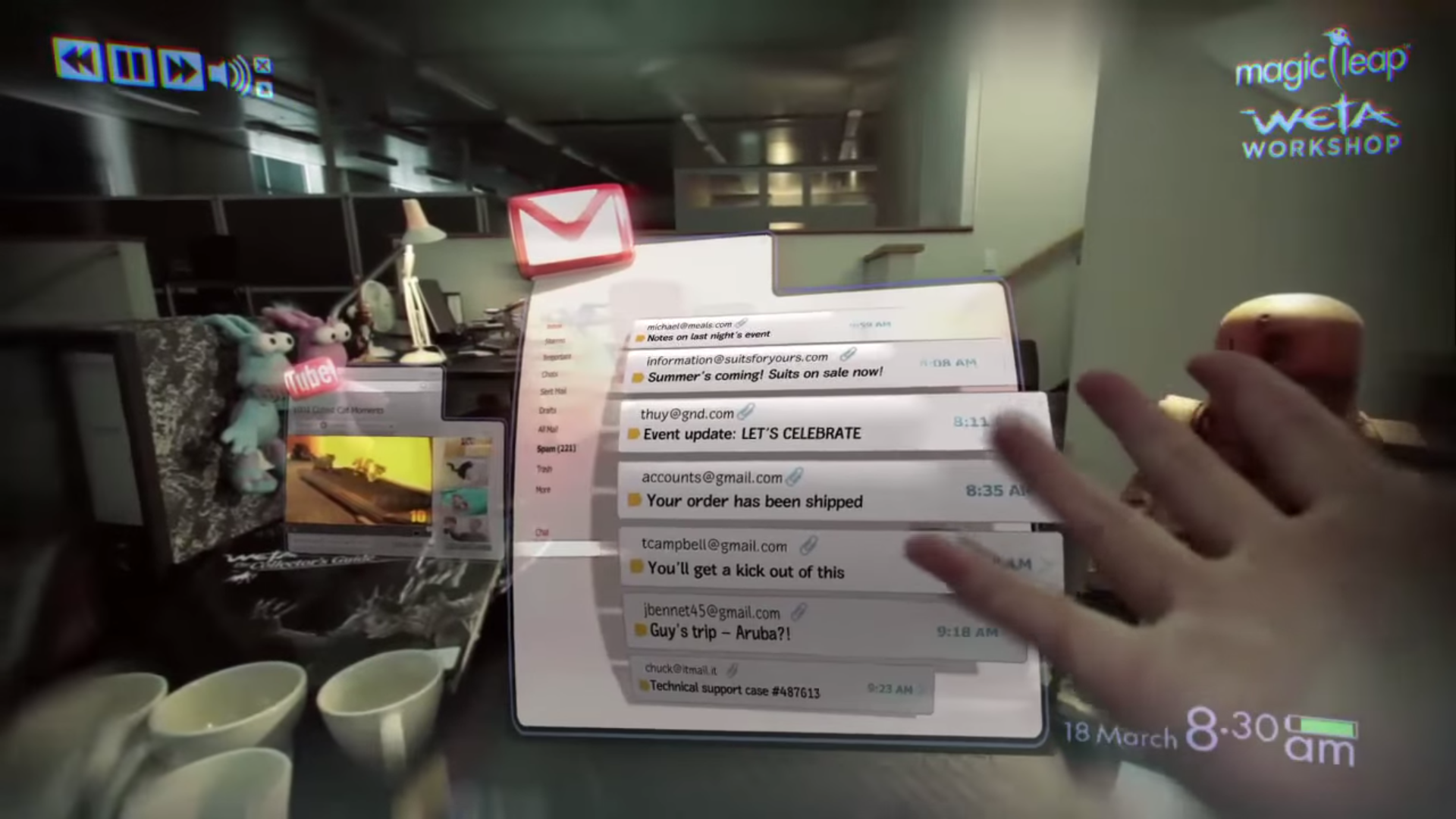
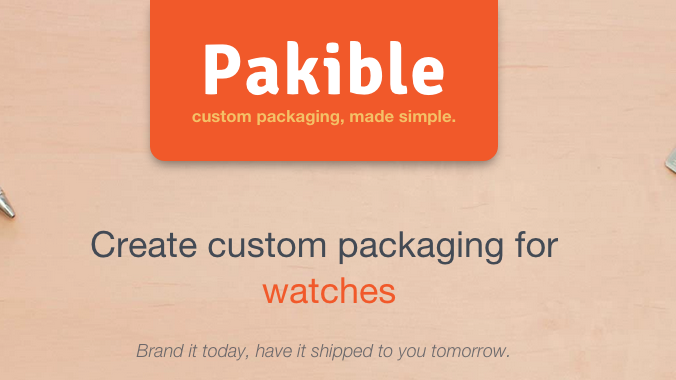
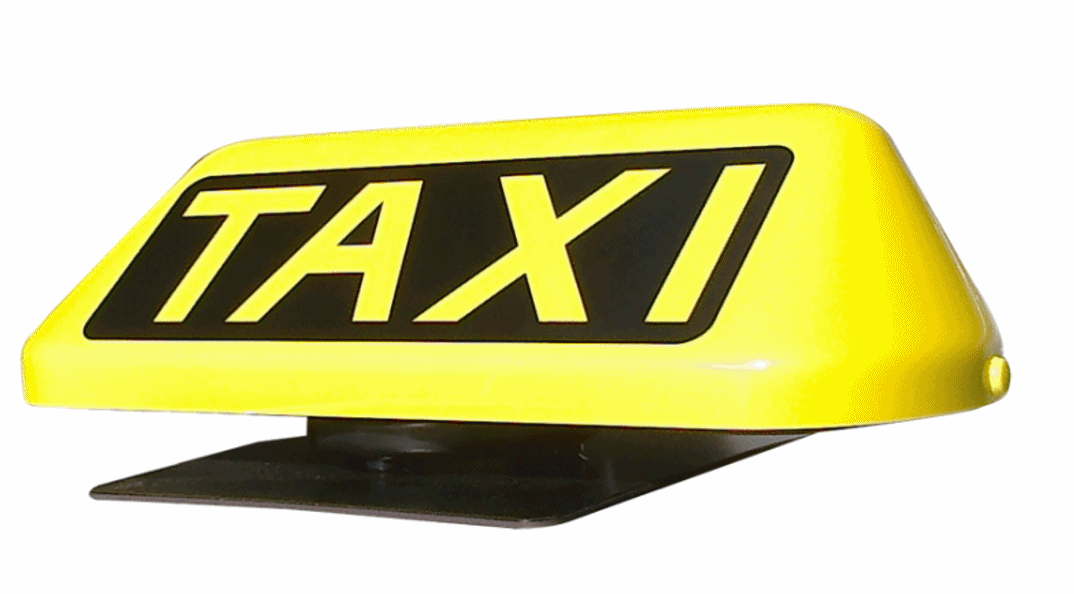


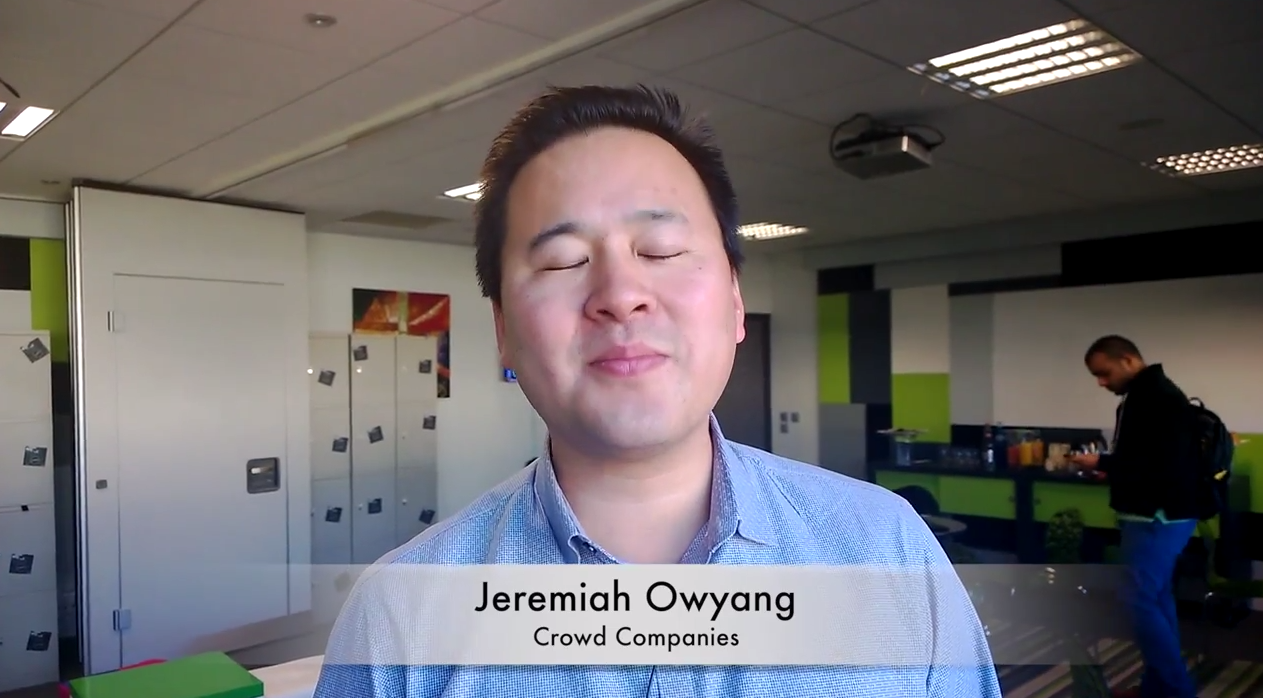



 I love the future. I have loved it ever since I started reading. Technology is shaping our future fast. Back in 1985 I wrote my first computer program. Back in 1994 I launched my first website and I have been working with organizations on integrating new technology ever since.
I love the future. I have loved it ever since I started reading. Technology is shaping our future fast. Back in 1985 I wrote my first computer program. Back in 1994 I launched my first website and I have been working with organizations on integrating new technology ever since.